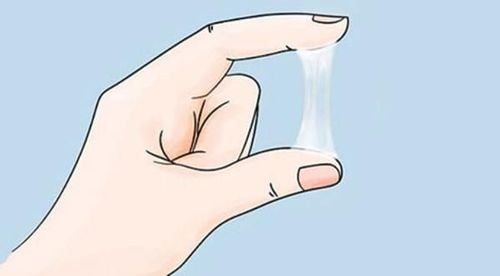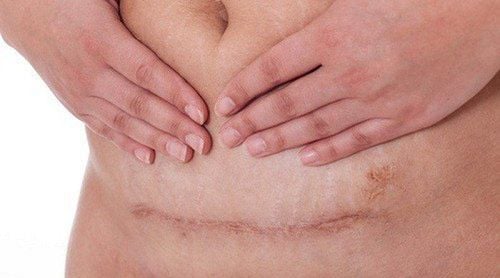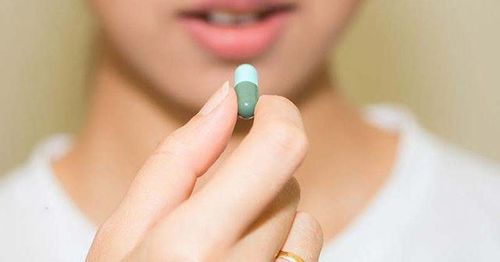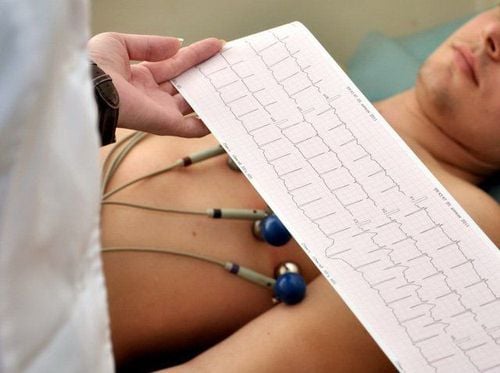This is an automatically translated article.
The article was professionally consulted by Specialist Doctor II Pham Thi Tuyet Mai - Obstetrician and Gynecologist - Department of Obstetrics and Gynecology - Vinmec Hai Phong International General Hospital.Postpartum depression is a fairly common condition today. The disease not only affects the patient directly, but also adversely affects the family and society.
1. Causes of postpartum depression
The exact cause of postpartum depression is still unknown. This pathology is the result of various influences such as psychological, physical influences and hormonal disturbances. Here are some suggested causes that can cause postpartum depression:Physiological: During pregnancy, female hormone levels increase, but after giving birth, this hormone level decreases very quickly. Sudden hormonal changes entail many psychological and physical changes. In addition, decreased adrenal and thyroid hormones also contribute to postpartum depression. Physically: Women with a history of depression are 3-5 times more likely to develop postpartum depression than normal women. Postpartum women have to take care of their children, leading to fatigue, frequent lack of sleep, and depression. In addition, women with a history of psychological illness, or stress, anxiety or young mothers are also prone to postpartum depression. Psychologically: postpartum mothers have to face a lot of pressure such as child care, family, change in appearance, job change, or not receiving attention from family...all All these factors can affect the mother's psychology, making her stressed, tired and prone to postpartum depression.
2. Diagnosis of postpartum depression

DSM-5 Diagnostic Criteria At least 5 symptoms coexist for a minimum of 2 weeks and there is a change in function from the past in them Must have at least 2 symptoms of depressive mood and loss of interest including:
Depressive mood manifests throughout the day and persists. Decreased or loss of interest in all previous activities. Loss of body weight more than 5%/1 month. Insomnia at the end of sleep (waking up at least 2 hours earlier than usual). Inhibition of psychomotor activity in a narrow range (excitement in the area around his bed). Fatigue or a persistent feeling of loss of energy. Feelings of worthlessness or excessive guilt or other feelings of inadequacy. Reduced thinking energy, reduced concentration of attention, decreased ability to make decisions. Intent to commit suicide. These symptoms cause clinical distress, affecting social, occupational, or other important areas of functioning. Symptoms are not due to the physiological effects of a substance or disease. These symptoms do not meet the diagnostic criteria of the mixed stage ICD-10 diagnostic criteria Having at least 2 of the following 3 characteristic symptoms :
Depressive mood. Decrease or loss of all interest and enjoyment. Reduced energy leads to fatigue and decreased activity. At least 3 of 7 common symptoms are present :
Decreased attention span. Reduced self-esteem and confidence. There are ideas that are guilty and unworthy. The future looks bleak and pessimistic. Having suicidal thoughts and behavior. Sleep disorders. Loss of appetite *Symptoms must persist for at least 2 weeks
Doctors can diagnose postpartum depression based on clinical symptoms and perform laboratory tests. There is no specific test to diagnose postpartum depression, but there are several tests that can aid in the diagnosis, namely:
Test for serotonin levels in the patient's plasma or in the cerebrospinal fluid. Many studies show that serotonin levels in depressed patients are lower than that of normal people, in some cases only about 30% of that of normal people. If treated with antidepressants, the patient's serotonin levels will gradually increase with an improvement in clinical symptoms. Electroencephalogram: EEG of depressed patients often has the form of increased beta wave index, decreased alpha wave index and amplitude. Brain MRI: When brain MRI scans, depressed patients can detect atrophy of some brain regions.
3. Treatment of postpartum depression

3.1 Antidepressants Antidepressants act on neurotransmitters, thereby helping to regulate the patient's mood. Some commonly used antidepressants include:
Tricyclic antidepressants: this class of drugs affects both serotonin and norepinephrine levels. Common drugs include: Amitriptylin, Clomipramine, Imipramine,...Side effects of this group of drugs are drowsiness, dry mouth, constipation, urinary retention,... Selective Serotonin reuptake inhibitors: include: the following drugs Fluoxetin, Sertraline, Paroxetine,... These drugs are well tolerated and quite safe when breastfeeding because the amount of drug excreted in breast milk is small. There are also other drugs used in the treatment of postpartum depression such as Selegiline, Mirtazapine, Benzodiazepine,... Antidepressants can cause many side effects, directly affecting both mother and baby. through breast milk. Therefore, antidepressant drugs should not be used indiscriminately, must strictly follow the instructions of a specialist.
3.2 Non-drug treatment Psychological counseling: this is the preferred therapy when the disease is in a mild stage. Psychologists and counselors will talk to and support patients to overcome psychological obstacles in life.
Besides, the support and encouragement from family also plays an extremely important role. Relatives should pay more attention to the patient, notice any unusual signs, and ensure that the patient takes adequate medication. In addition, patients need to enhance relaxation, rest, exercise, contact and talk with relatives and friends more.
Please dial HOTLINE for more information or register for an appointment HERE. Download MyVinmec app to make appointments faster and to manage your bookings easily.














